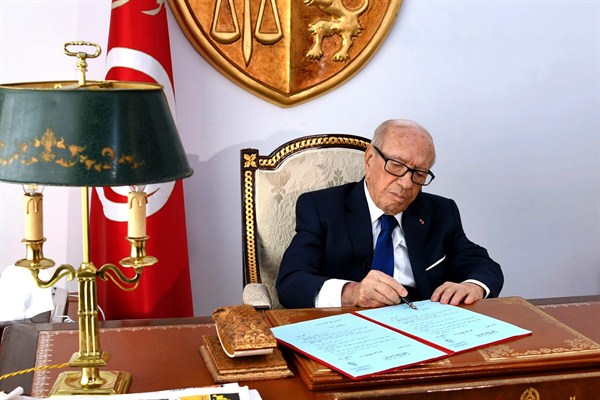On July 25, less than a month after an initial weeklong hospitalization, Tunisian President Beji Caid Essebsi died in a military hospital in the capital, Tunis. A critical bridge between Tunisia’s past autocracies and its current democracy, Essebsi’s earlier hospitalization understandably raised fears about the country’s ever-tenuous transition. Paradoxically, his death gave it a push forward.
On the same day that Essebsi was first hospitalized, June 27, two separate suicide bombings in Tunis killed one policeman and injured several people. With both presidential and parliamentary elections scheduled for later in the year and the country’s peak tourism season around the corner, it seemed that Tunisia’s vulnerable democratic transition was, once again, about to take a turn for the worse.
“We were more worried about Beji,” says Mourad Sellami, a longtime journalist and Tunis-based political analyst, in a phone interview, “because we understood that the attacks were amateurish and not a threat, but that the problems with the president were serious.”

